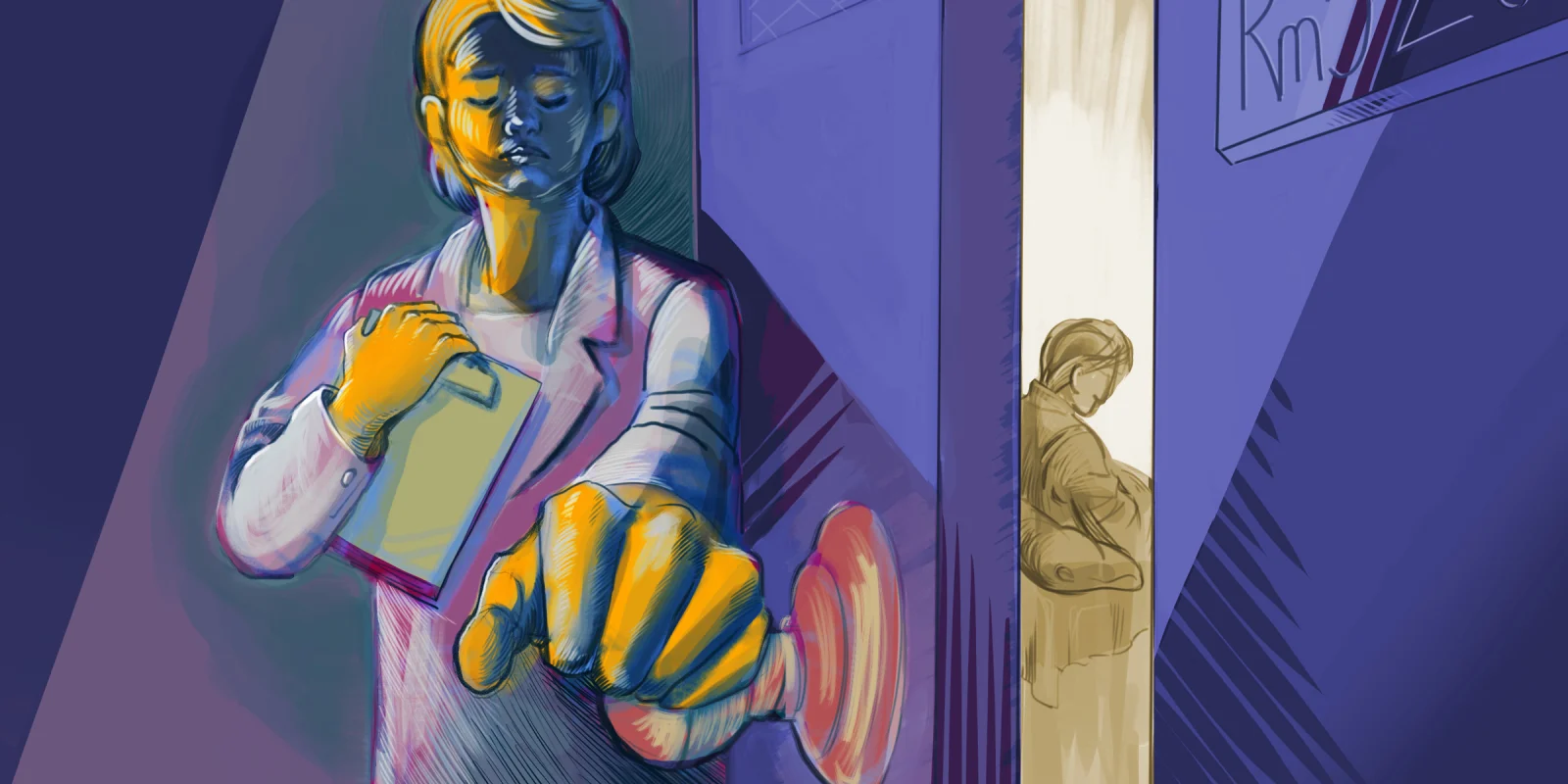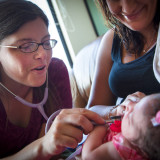The attending smirked slightly as he sent me to talk with Mr. Simpson, an older gentleman with a list of problems that went onto a second page in his chart. Mr. Simpson was here for a routine medication refill, and I was on my first internal medicine rotation as a third-year medical student.
“Ah,” said Mr. Simpson with a sneering smile, leaning back and settling himself more comfortably in the exam room’s metal-armed chair. “A medical student, eh?” He chuckled unkindly.
“Yes sir,” I replied. “Your doctor wanted me to come chat with you for a few minutes.”
“So you’re here to tell me how bad smoking is for me and to convince me to stop.”
“Um, yes?” I hesitated. It felt like a trap. “I was asked to chat with you about your smoking.”
“Well, go ahead then. I’ve smoked for twice as long as you’ve been alive and you think you’re so smart coming in here. You don’t know anything about it. Have you ever smoked?”
“No, I’ve never smoked.”
Mr. Simpson snorted and glared at me. “Then what gives you the right to come in here and tell me what to do?”
My stomach churned and my hands felt hot and damp. I didn’t want to face Mr. Simpson, but I also didn’t want to face my attending. I knew there was no right answer to Mr. Simpson’s rhetorical question. He sat glaring at me. So, I went ahead and said exactly how I felt at that moment. “You’re right,” I told him. “I don’t have any right to come in here and tell you what to do and there’s no reason for you to listen to me.”
Mr. Simpson looked surprised — but that didn’t stop him from responding. “You’re the first one to realize just how pathetic you are. You medical people are always telling me to quit. Well, I like smoking. I’ve smoked since I was 10 years old. Do you realize how hard it would be for me to quit?”
“I know some people who’ve done some really hard things and I’ve heard from them that quitting smoking is the hardest thing they’ve ever done. So I guess it probably would be harder than anything I’ve ever done.”
“Yeah,” agreed Mr. Simpson angrily. “So who are you to come in here and tell me to do something that’s harder than anything you’ve ever done? You’re too young to tell anyone to do anything.”
He’d stabbed directly at my weak point. I already felt too young and inexperienced to tell anyone to do anything; his reminder stung. My cheeks flushed. I just wanted to go home. But I kept a calm expression and took a quick grasp at my self respect, a show of spirit even though he’d already won. “All I can do is learn from people like you and someday I’ll know more,” I replied, sounding far more confident than I felt.
“Well you go on out there and tell my doctor that you couldn’t do anything about me,” he instructed.
I went.
My attending laughed when I approached. “Well, what do you think of our Mr. Simpson?”
Now, I understood the smirk he’d sent me in with. Apparently Mr. Simpson was known for belittling medical students and putting us in our place. I felt betrayed by my attending — was he actually enjoying my suffering?
A few days later, Mr. Simpson was back with some shortness of breath. He was the last person I wanted to see, but for the sake of that holy grail of medical training, continuity, I was sent to collect his history. I paused outside the door to try to calm myself down. My mind was racing with all of the things I had learned in school, all of the information and statistics I could use to convince him that his symptoms showed that he needed to quit — but Mr. Simpson’s appearance startled me out of my plan. He leaned forward onto his knees like someone who had just completed a marathon, breathing heavily.
“You’re going to use this,” he paused to suck in a breath of air, “to say you were right.”
“That wouldn’t be kind,” I said, realizing I felt compassion for this old curmudgeon. “You don’t feel good.”
He harrumphed. “Well, I’m not going to quit,” he reminded me, hanging onto his point even as he struggled to breathe.
“Obviously,” I said, feeling safe to take a stab at him when he couldn’t stab back. “If you were going to quit, you would have by now. You look pretty miserable.”
“Well,” he asked, pausing again to breathe and glare at me. “Why are you here?”
“To find out why you’re here and how we can help,” I replied, parroting the phrase I’d been taught.
After a nebulizer treatment, Mr. Simpson was back to his old fighting form. I didn’t bring up the touchy subject, but he was ready to keep going. “I’ve been through more than you can imagine. I’ve had a hard life. If I want to smoke, if smoking helps me, who are you to tell me to quit?”
By now, I didn’t care if he stopped smoking, I just didn’t want to be at the receiving end of his attitude. “I can see that,” I replied. “Smoking has helped you a lot.”
“Are you trying to reverse psychology me?” he demanded.
“No,” I said. “There’s just nothing for me to say.”
“That’s right!” he agreed. “You’re learning. You’re the first one to admit that smoking has helped me. I’ve smoked since I was 10 because I grew up early. You’re not even grown up now, still in school and pretending you’re somebody.”
I tried to hang on to that compassion I’d felt when he’d been struggling for air. “Your life must have been really hard to start smoking when you were 10,” I acknowledged. “You were just a kid.”
“I was never a kid,” he corrected me.
“Of course not,” I agreed.
The next day, Mr. Simpson had a visit with the nurse to check his oxygen level, so I stayed well clear of the nurse’s station. I was blessedly not in the office when he came in for a follow-up appointment with my attending. I honestly hoped I would never have to see him again. But on my last day of the rotation, a nurse found me.
“Mr. Simpson is scheduled with one of the other doctors but he wants to see you,” the nurse said.
I felt my chest tighten and my hands start sweating. What did he want with me? Why didn’t he just leave me alone? I didn’t want to hear any more about my youth and incompetence.
I tapped on the exam room door and paused, taking a few deep breaths before I went in.
“I wanted to tell you something,” Mr. Simpson said. He looked more like an ordinary old man than the terror I had imagined was waiting for me.
“Tell me?” I echoed.
Mr. Simpson smiled. “I quit.”
Have you ever unexpectedly succeeded in getting through to a difficult patient? What did you do that worked — and what did you do that didn’t? Discuss in the comments!
Robin Dickinson, MD is a board-certified family physician who teaches clinical skills to first-year students at Rocky Vista University. She created the first pre-medical curriculum for kids, hosts a podcast for young people who want to be physicians, consults neurodiverse families and individuals, and founded the only free clinic and the first DPC practice in her hometown. You can find her at robindickinsonmd. Dr. Dickinson is a 2021–2022 Doximity Op-Med Fellow.
Illustration by April Brust







